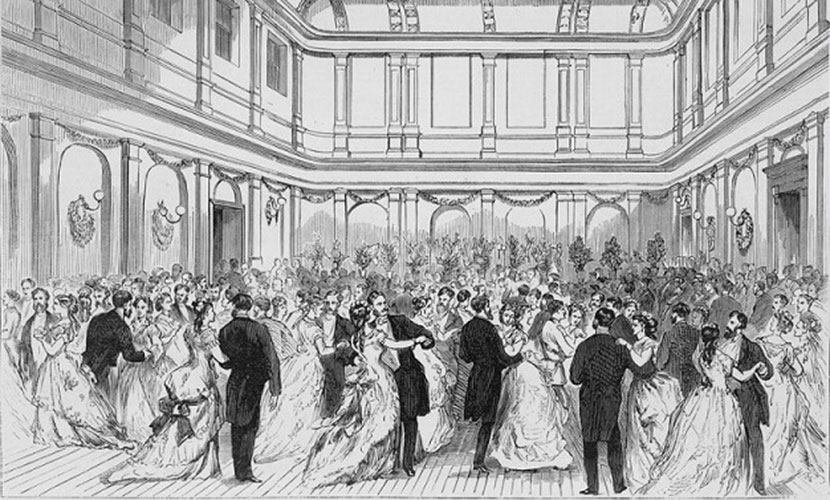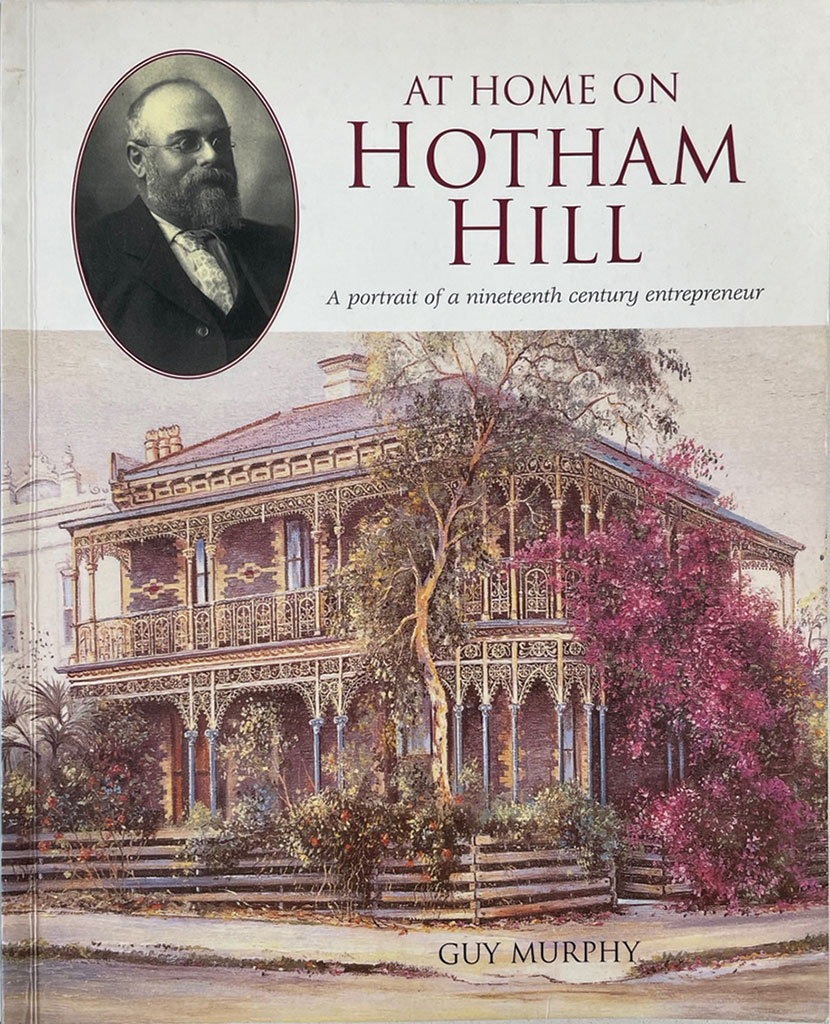At home on Hotham Hill
The Hotham History Project holds regular talks and walks on topics of local interest. Our next presentation will be given by Guy Murphy who has 20 years’ experience as a heritage consultant.
His book, describing the grand house built by Robert Langford on the corner of Dryburgh and Curran streets, is called At Home on Hotham Hill, published by the Hotham History Project in 2004.
Subtitled “A portrait of a nineteenth century entrepreneur”, the book does much more than just tell Langford’s story, but sets it in the context of the development of the municipality of Hotham that in 1887 was to become North Melbourne, and the wider social history of Victoria.
Langford was aged six when he arrived in Melbourne with his family in 1857. His father, John, worked as a fruiterer in Melbourne’s Eastern Market, where Robert was able to gain skills in the marketing business prior to setting himself up as a seller of fish in the market where Flinders Street Station now stands. His business became highly successful, and he was able to consolidate his financial success by involving himself in real estate and property development.
In 1880 Robert built his home, Milton Hall, on the corner of Dryburgh and Curran streets. It was a two-storey brick house of 10 rooms.
He was elected to the Hotham Council in 1883, serving one term as Mayor in 1883-84. His wife, Elizabeth, excelled at hosting both private and public functions at the Town Hall, and the first that is recorded was a housewarming party celebrating their new home, Milton Hall. The Town Hall was the chosen venue because they had invited 180 guests. The year of his mayorality was a social whirl, culminating in the ball to celebrate the end of his term which was attended by more than 300 guests.
He resigned as a councillor in 1887. This was the year in which he sold Milton Hall and he moved to Hawthorn. But this was not the end of Robert’s business or political career as Guy Murphy describes in his book, including his attempt to enter state politics and his losses as a result of the Great Depression of the early 1890s. He died from peritonitis in 1915.
Guy is also going to talk about new information that has come to hand in the 18 years since publication, information that has become more readily available with online newspapers that make searching for historical details so much easier. He will also reflect on what he has learnt about the writing of history in the intervening years.
Details of the talk will be available through the Hotham History Project website: hothamhistory.org.au. Books can also be purchased online at a cost of $25 •

The Movement Refinery: 20 years and still going strong






 Download the Latest Edition
Download the Latest Edition